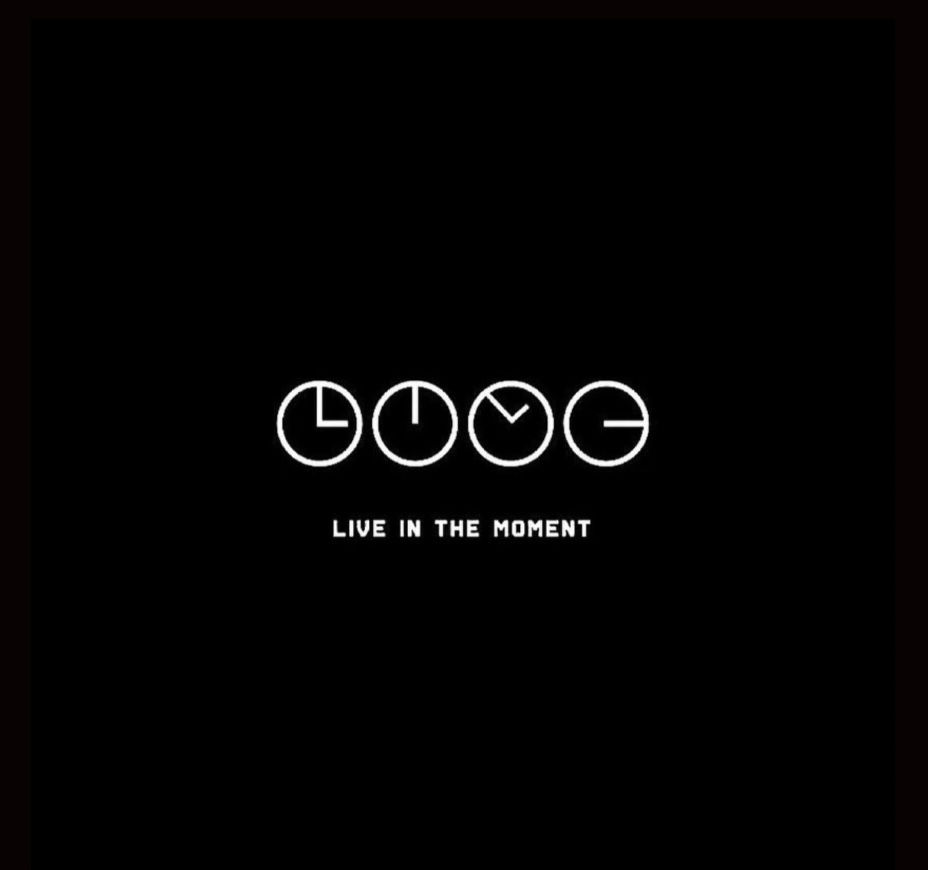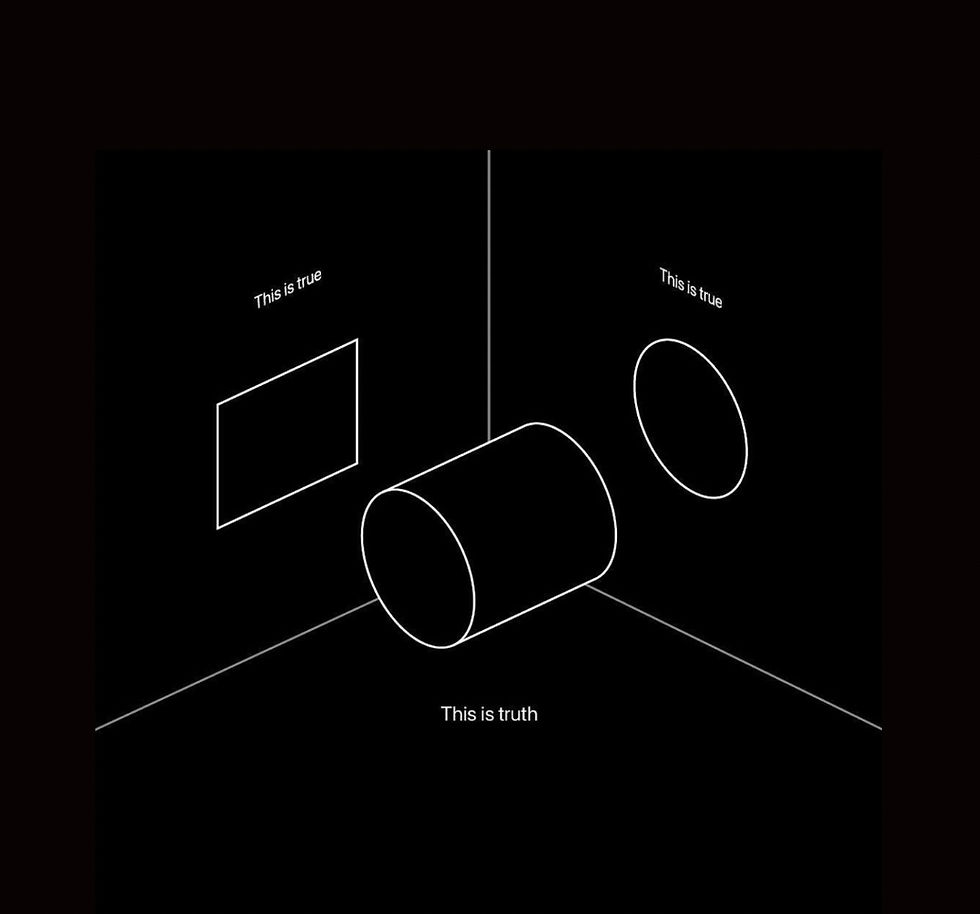Observing Behavior Changes Behavior
- Palveshey Tariq

- Oct 6, 2025
- 5 min read
Author: Naga Das
THE DOUBLE SLIT EXPERIMENT EXPLAINS WHY WE ACT DIFFERENT WHEN SOMEONE'S WATCHING
In quantum physics, there's this wild experiment called the double slit experiment. In the early 1900's scientists shot particles through two slits and expected them to behave like particles, making two distinct lines on the detection screen. Instead, they created an interference pattern, like waves do. The particles were acting like waves, spreading out and interfering with themselves.
And then things got weird: the moment scientists set up detectors to observe which slit each particle went through, the interference pattern disappeared. The particles went back to behaving like particles, creating two distinct lines. The act of observation literally changed how the particles behaved.
We do this too. When we're giving a talk on stage and we feel people watching us, our behavior changes. We stand differently. We speak differently. The observation itself alters the behavior.
And this isn't just true for external behavior, this is true for internal behavior as well. When we begin to observe our internal behavior, it also begins to change.
WHEN I FINALLY NOTICED MY OWN THOUGHTS
In winter of 2020, my husband was reading Breath by James Nestor. He began to notice that when I would inhale, I wouldn't really exhale. This is actually quite common, especially when we're attempting to focus on something. We have a tendency to inhale and hold our breath as if it will help us focus more, but this is actually counterproductive to focus. The brain needs oxygen to focus, and when we hold our breath we deprive it of just that.
Anyway, I digress. My husband pointed this out and observed that I might be experiencing anxiety because I didn't have control over my breath. So I sat down to focus on my breath and train myself to breathe in and out smoothly.
After a few minutes, my mind began to wander. For the first time, I began to notice or observe my thoughts. There were a lot of task-oriented thoughts in my mind like, "Oh, I need to wash the dishes. I need to dust the house. Oh, and remember that one traumatic memory we felt a lot of pain? I need to take the dog out. I need to pay the bills. Oh, and remember that one traumatic memory we felt a lot of pain?"

In between my task-oriented thoughts were old memories from my childhood I had "forgotten" I remembered. But here they were, floating around in my mind. And for the first time I noticed they were still there, cycling through my mind on repeat.
So I began to talk to myself. I began telling myself that I was safe now. That I had made it out of that experience and I had nothing to feel guilty about. And just like that, that memory faded away never to return. And for the first time in my life, I wasn't feeling so angry or afraid of the world. I had finally resolved a repressed memory that had been dictating my behavior unconsciously for decades.
Observing my behavior changed my behavior.
MOST OF US DON'T REALLY OBSERVE OUR BEHAVIOR
And if we do, we usually get caught up in justifying our actions.
This is not observation. This is the self-righteous disguise of the ego colluding with the mind to create a story that perpetuates an identity, allowing us to continue our sh*tty behavior.
If we haven't taken ownership of our role in the drama that somehow follows us everywhere, then we haven't yet started observing ourselves without judgment.
EVERYONE WANTS TO BE A F*UCKING GURU FROM THE GET-GO
Observation can begin with something as simple as meditation. And I'm not talking about the kind of meditation where we soothe ourselves by trying to escape our problems.
No. That takes practice and starts with accepting our shadow. How can we try to turn something off when we don't even know how it turned on and why it keeps running?
I'm talking about something as simple as paying attention to our breath and noticing what the mind begins to do.
It's important to start with something as simple as this because it can resolve underlying anxiety and expand awareness.
THE GREAT DISH STANDOFF
The pandemic was a strange time for everyone. My husband and I had just moved in together after only knowing each other for three months, and a week later we went into lockdowns. We got to know each other really fast.
One of the things we learned quickly was that neither one of us liked doing the dishes. One day the dishes had been piling up for weeks and I blew up on him and gave him the silent treatment for two weeks while the dishes continued to sit in the dirty sink.
After two weeks we had another fight, at the end of which he told me I was acting crazy.
Tensions were high during the pandemic (this is not a common interaction between the two of us). In that moment I yelled back, "You're right," and I went for a run.
When I returned after blowing some steam, I sat on the couch and asked myself why I got mad at him when I wasn't doing the dishes either.
I realized I had been judging the dishes as a chore that felt like a punishment… likely because washing dishes and cleaning bathrooms were always used as punishment in my childhood. I released this judgment and went to the sink, turned the water on, and began rinsing the dishes.
For the first time in my life, I noticed the soft, warm water touch my skin in a magical way. How incredible that this clear liquid that makes up the whole universe is coming out of a faucet and running over my skin, both absorbing and slipping off at the same time. How incredible that my skin is capable of feeling the different temperatures and textures of the water and soap without it damaging me. How incredible that I am able to perceive this experience with my eyes, my ears, my skin, and my smell.
How could I have put this magical experience off for so long? What a gift this was.
THIS KIND OF OBSERVATION CAN FREEING AND TRANSFORMATIVE
When we actually observe ourselves—not justify ourself, not create stories about why we're right—when we just watch what's happening inside us without judgment, things start to shift.
Just like those particles in the double slit experiment changed their behavior when they were observed, our internal patterns begin to change when we finally pay attention to them.
We can't change what we won't acknowledge. We can't heal what we refuse to see. And we definitely can't transcend the patterns that keep showing up in our life if we're too busy defending them to notice they're there.
Start with your breath. Start with noticing where your mind goes. Start with asking yourself why you're really mad instead of building a case for why you're justified in being mad.
The observation itself will do the work. We just have to be willing to actually look.

.png)


